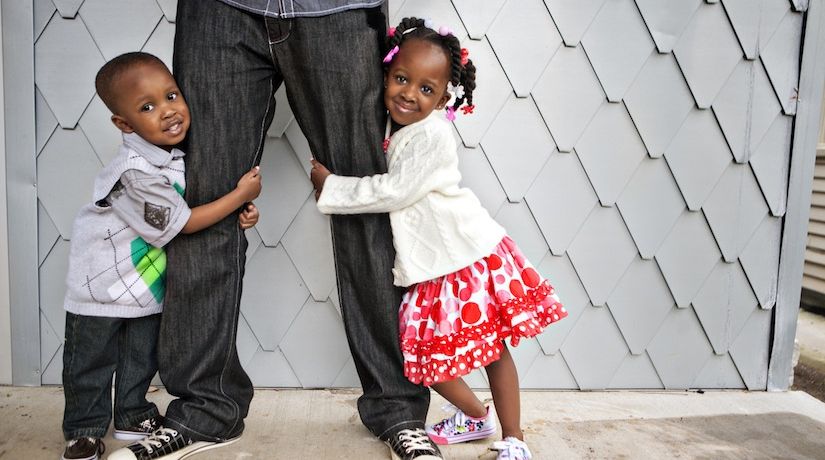.
Australia/China Trade Dispute Turns Into a Diplomatic Brawl
“Increasing provocations, tariffs and economic muscle-flexing have relations between Australia and China in a deep freeze. How did it happen? Where will it lead?

“Relations between Australia and its biggest trading partner, China, have rapidly deteriorated as Canberra has recently taken a more muscular approach to Beijing’s increasingly assertive foreign policies.
On Anzac Day, when Australia and New Zealand honor their war dead, Peter Dutton, Australia’s newly appointed defense minister, told the Sydney Morning Herald that Australia was “already under attack” in the cyber domain and warned that Chinese bullying of Taiwan could lead to a regionwide conflict. Home Affairs secretary Michael Pezzullo shockingly added that free nations were hearing the “drums of war” beating again.
Australian Prime Minister Scott Morrison announced a dramatic increase in military spending just before several newspapers published a confidential briefing by a former top general in the Australian Defence Force. He warned that Australia must prepare for the “high likelihood” of actual conflict because China was already engaged in gray zone warfare—aggressive state behavior that is often covert or deniable, and that falls short of acts of war, but includes political interference, cyber intrusions and economic coercion.
Is war conceivable?
The idea of Australia on its own fighting a war against China appears preposterous. Australia is a nation of a mere 25 million people. With no nuclear weapons and a small navy, it would face a nuclear-armed China of 1.4 billion people, with a military budget estimated to be 10 times larger than Australia’s. China has a shipbuilding program that outpaces any other country in history and a navy recently transformed into one of the world’s premier blue-water navies.
Yet Australian attitudes have nonetheless been hardened by Beijing’s heavy-handed approach.” CONTINUE READING From: https://lifehopeandtruth.com/prophecy/prophecy-in-the-news/australia-china-trade-dispute/?
_______
Antisemitism
“Antisemitism is on the rise in the U.S. and around the world. At the heart of antisemitism is hatred of God and His ways. Those that choose to obey Him may suffer the same persecution that we are seeing today.
Transcript of YouTube: https://youtu.be/ZNyAie3VkC8
[Darris McNeely] “There's been a ceasefire called in the recent war in the Middle East and with the State of Israel against the terrorist group, Hamas and the rockets that they were firing out of Gaza raining down on Jerusalem. And the State of Israel, we hope that it will hold but the prospect of enduring peace is very slim. No doubt in time, it will all start up over again.
In the aftermath of that, however, I've been watching a number of articles that have described another phenomenon that has raised its ugly vile head, as a result of this latest conflict in Israel with Hamas and the Israelis, is what we call antisemitism. The hatred of Jews. An evil long problem, Christian pogroms going back hundreds of years in Europe created all kinds of problems for the Jewish populations of those countries. We're all familiar with the Holocaust of World War II and the Nazi effort to exterminate more than 6 million Jews and to eliminate what they consider to be a problem.
Antisemitism and this Jewish hatred and hatred of things Jewish has not disappeared, unfortunately, from the world seen in this most recent outbreak of violence many have seen has caused this to come to the fore even more. There was an article that I was reading in The Wall Street Journal that brought out a statistical fact on antisemitism that should shock us. And I quote from this article, that "Contemporary hatred of Jews is still on the rise. The Federal Bureau of Investigations Hate Crime data shows that since 1996 and 2019, hate crimes against blacks have gone down significantly." And that's a good thing. But in the corresponding time, hate crimes against Jews, antisemitism, has not gone down. In fact, it's scarcely changed. And, of course, most recent events show that it has come up. Jews dining in a restaurant in Los Angeles were physically attacked by crowds shouting antisemitic slogans. In London, parades going through the streets of people who were against the Jews and shouting antisemitic slogans as well took place, and in other parts of Europe.
It's been shocking. What do we learn from this? What is it that you need to understand? You may not be a Jew, ethnically, but if you keep God's Sabbath, if you keep God's holy days, if you keep the Passover, you will be considered Jewish by some standards, by some people who may have a particular problem or animus. To obey God, Biblically, puts us in the entire line of the Jewish people who have kept their identity, who understand that they are descended from the tribe of Judah, part of Ancient Israel, their father is Abraham. And they understand their heritage, their lineage, their descent.
A Christian who keeps God's Sabbath, who keeps God's laws today can be lumped into those who are Jewish. I've had that happen to me years ago and been thought that I was Jewish because I kept the Feast of Tabernacles, the Holy Day, mentioned, of course, in the New Testament, the Old Testament there. What do we learn from this? That persecution, hatred of God really is at the heart of antisemitism.
Years ago, I read an article, actually a book called "The Gift of the Jews" by the author, Tim Cahill. And he actually got to the heart of the problem as to what is antisemitism. He said, it's really a hatred of God because the Jews have kept their identity, and they keep Torah, they keep the law. And he boiled it down to what he called the hated 10 because man doesn't wanna keep a law of God. And that is, as he said, the core problem with antisemitism. It's what the Apostle Paul said in Romans 1, that they did not want to keep God in their knowledge. And there's a hatred built into the human nature, it seems, for God. And so, you keep God's law, you keep God's commandments, you should understand what antisemitism is.
There's a Scripture in Revelation 12 (Revelation 12:17), that I always take people to illustrate this. It describes a time in the age prior to just before the return of Jesus Christ, when Satan the devil is enraged because his purposes are being foiled. And he goes out knowing that he has a short time to wreak one final persecution upon believers on the Earth. And it says in verse 17, "The dragon was enraged with a woman and he went to make war with the rest of her offspring." The woman is the church, the church of God, the offspring are its members of that church. The dragon makes war with them. And they're identified as those who keep the commandments of God and have the testimony of Jesus Christ. Those who keep the commandments of God, the 10 commandments, the law of God, who understand how that fits with the Gospel of Jesus Christ, which is exactly what God's Church does.
Antisemitism is something that any believer in God who obeys the Word of God and the Bible, those of the Church of God should be aware of, should understand, as it rears its head and take note, guard yourself, certainly recognize God is in control and God is in charge. But there will be a consequence for obeying God.
Antisemitism is a problem. It's an evil and it has impacted the Jewish people. And it will impact ultimately, as the Scripture shows, by the time of the end, many beyond even the ethnicity of the Jewish group. And so, Christians who keep God's Word, the commandments, and the testimony of Jesus Christ should take note, watch, and be aware.” From: https://www.ucg.org/beyond-today/beyond-today-daily/antisemitism
_______
How Quickly We Forget
“There is something wrong with the human mind that we can witness God’s miracles one day and doubt him the next. Our faulty memory fills in the gaps with naturalistic explanations, with gloss and fuzz so that tragedy looms large, but promises fulfilled and prayers answered fade into obscurity.
With the pillar of fire and cloud right there in the camp, the manna appearing every morning, the plague graves still fresh, the Israelites still doubted God’s power to bring them into the Promised Land. When they heard God’s judgment of their lapse (an entire generation to die in the wilderness), they compounded their lack of faith with disobedience (attacking when God said to retreat). The end of fear–as it always is–was death.
Every one of us lives this same pattern of fear and forgetfulness. It is inherent in the fallen human condition. As a partial remedy, God gave us reminders of his actions, promises, and commands: the feast days, sacrifices, tzitziyot, (a Hebrew word that means “tassels”), etc. When we wonder what could be the point of those things today, we have only to look in the mirror.” From: http://www.americantorah.com/2010/06/10/how-quickly-we-forget/ _______ What Causes Cancer to Metastasize? “Palmitic acid, a saturated fat concentrated in meat and dairy, can boost the metastatic potential of cancer cells through the fat receptor CD36.” WATCH VIDEO Transcript: Below is an approximation of this video’s audio content. To see any graphs, charts, graphics, images, and quotes to which Dr. Greger may be referring, watch the above video. Intro: This is the first in a three-part series on cancer metastasis. In this series, I’ll look at what dietary components contribute to the spread of cancer, and what dietary interventions—and even specific foods—can lessen the risk of spread, therefore increasing the chances of survival. Let’s go find out. “Metastasis formation is the leading cause of death in cancer patients. That’s how most people die of cancer. It’s not the primary tumor, but the cancer spreading through the body. “[It’s] estimated that metastasis is responsible for [90 percent] of cancer deaths”, with little progress made in stopping the spread despite our modern medical armamentarium. In fact, we can sometimes make it worse: Therapy-Induced Metastasis. All the typical cancer treatments, radiation, chemotherapy, surgery—even just poking the tumors with fine needle biopsies—have the potential to contribute to the problem. I mean, you can imagine how cutting around a tumor, severing the blood vessels, might lead to the migration of residual tumor cells. But why chemotherapy? How might chemo exacerbate metastases? Despite reducing the size of primary tumors, chemotherapy can change the surrounding tissues, resulting in an increased escape of cancer cells into the blood stream. Sometimes chemo/surgery/radiation are entirely justified, but sometimes these treatments can make things worse. If only we had a way to treat the cause of the cancer spreading. The development of anti-metastatic therapies has been hampered by the fact that we haven’t been able to identity the cells that initiate metastasis. But then, this landmark study was published. Researchers found a subpopulation of human cancer cells “unique in their ability to initiate metastasis”, all expressing high levels of a fat receptor known as CD36, dubbed “the fat controller.” It turns out palmitic acid or a high-fat diet specifically boosts the metastatic potential of these cancer cells. Where do you find palmitic acid? Although originally discovered in palm oil, it’s most concentrated in meat and dairy. “Emerging evidence shows that palmitic acid . . . serves as a signaling molecule regulating the progression and development of many diseases at the molecular level”––and that’s the saturated fat that is recognized by the CD36 receptor on the cancer cells. And we know that’s to blame, because if you block the CD36 receptor, you block the metastases. Now this was for a human cancer; however, it was a human cancer implanted into mice, but clinically (meaning in cancer patients), the presence of these CD36-studded metastasis-initiating cells does indeed correlate with a poor prognosis. For example, CD36 appears to drive the progression of brain tumors. If you look at the survival curves, those with tumors with less CD36 expression lived significantly longer. The same with breast cancer mortality. No surprise, since “CD36 [appears to play] a critical role in [the] proliferation, migration, and…growth of…breast cancer cells.” Inhibit CD36, and you can inhibit “the migration and invasion of the breast cancer cells.” Cancer cell migration and invasion before and after CD36 inhibition. And not just in “human melanoma- and breast cancer-derived tumors.” Now we suspect that “…CD36…drives ovarian cancer progression and metastasis” too, since we can inhibit ovarian cancer cell invasion and migration and block both lymph node and blood-borne metastasis by blocking CD36. We see the same kind of effect with prostate cancer. Suppress the uptake of fat by prostate cancer cells, and you can suppress the tumor. This was all studied with receptor-blocking drugs and antibodies in a laboratory setting, though. If these metastasis-initiating cancer cells particularly rely on dietary fat to promote the spread of cancer, why not just block the dietary fat in the first place? Cancer cells love fat and cholesterol. The reason why fat metabolism may fuel cancer’s spread is because there is so much energy stored in fat. “Hence, … metastatic cells might take advantage of this feature to obtain the high amount of energy that is likely to be required for them to anchor and [set up shop throughout the body].” “The time when sugar was considered as the major, if not only, fuel to support cancer cell proliferation is over.” There appears to be “a fatter way to metastasize”. No wonder “…high-fat [diets may] …play a crucial role in increasing the risk of different cancer types, …[including] several advanced cancers.” Okay, if dietary fat may be “greasing the wheels of the cancer machine,” might there be specific dietary regimens we could use to starve cancers of dietary fat? You don’t know until you put it to the test, which we’ll cover next.” From: https://nutritionfacts.org/video/what-causes-cancer-to-metastasize/? ________


 “Many desire to help friends and relatives who are growing older. But sometimes those who have helped so many others are not so welcoming of help themselves.
“Many desire to help friends and relatives who are growing older. But sometimes those who have helped so many others are not so welcoming of help themselves.











